Interview: THIS WILL BE Ali MacLean's YEAR @ SheLa Arts
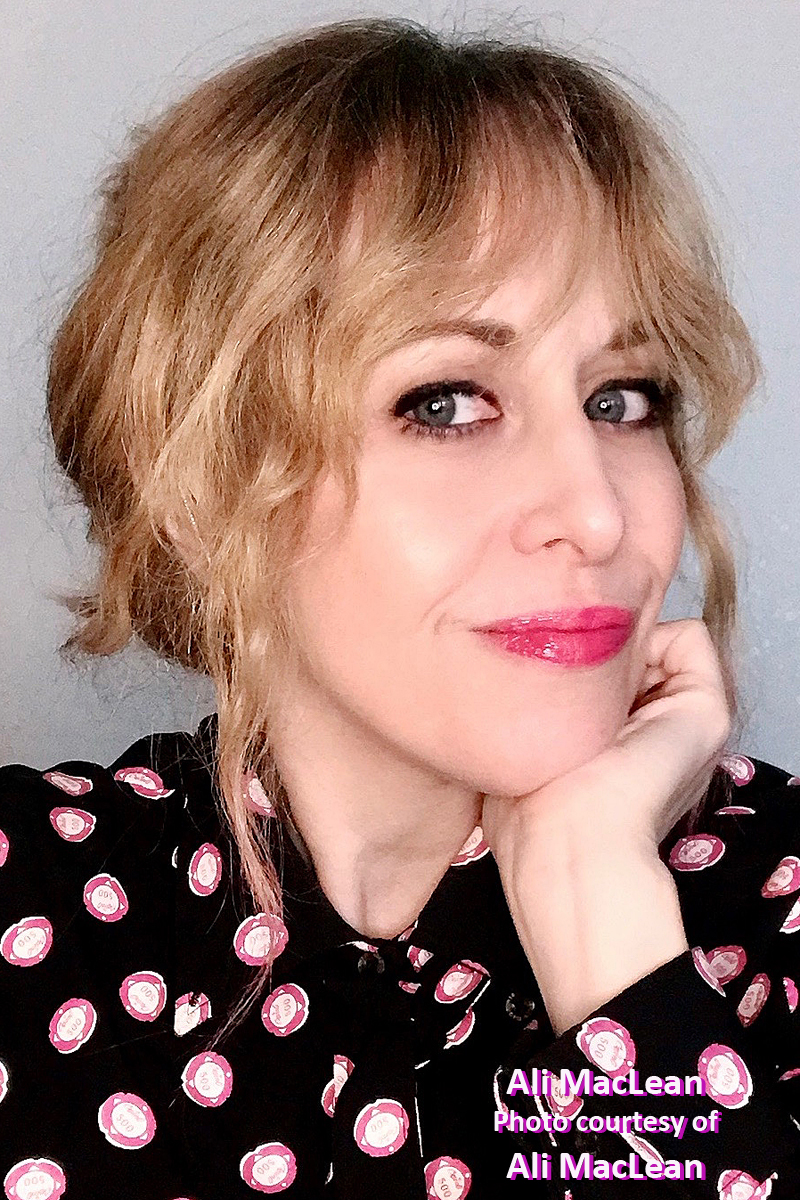
The third annual SheLA Arts' Summer Theater Festival has gone completely digital this year, running July 13 through July 19, 2020. I had the socially distant chance to pose a few questions to one of the five elected playwrights chosen for this year's festival, Ali MacLean, whose THIS WILL BE OUR YEAR will world premiere July 17th via Zoom.
Thank you for taking time for this interview, Ali!
What have you been doing with your stay-at-home time to keep healthy, sane and creative?
I've been writing! I went through a mourning/moping period, but then found the quarantine to be beneficial. I've written a new play, and I'm halfway through another one. Without the distractions of, you know, life; I can get work done. I've also had Zoom meetings with the Antaeus Theatre Company playwriting lab and the Ensemble Studio Theatre Playwrights Unit. So twice a week I'm testing out material, acting, or giving notes on my fellow playwrights' work. As far as health, I wouldn't recommend my regimen. It involves online HIIT classes, staying up all night, and eating way too many cheese crackers.
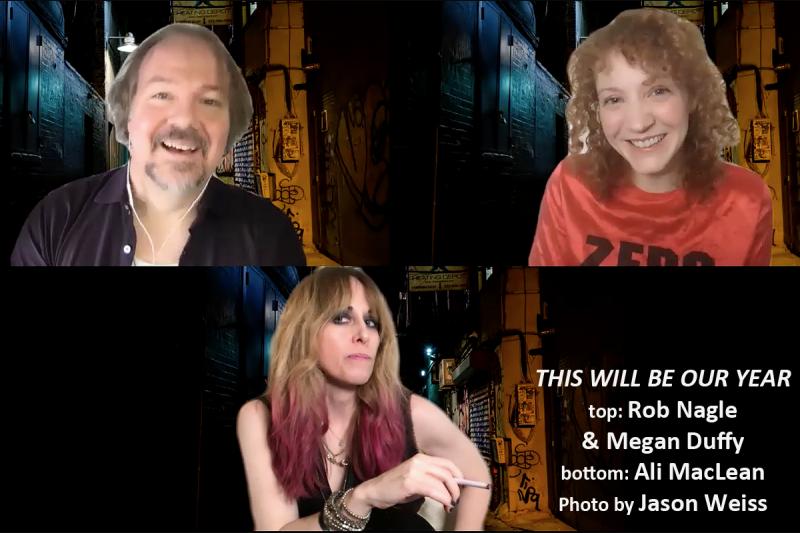 THIS WILL BE OUR YEAR will be the second of your The Zombies trilogy (The first - SHE'S NOT THERE and the third I'LL CALL YOU MINE). What sparked your fascination with this chart-topping British rock group of the 60s?
THIS WILL BE OUR YEAR will be the second of your The Zombies trilogy (The first - SHE'S NOT THERE and the third I'LL CALL YOU MINE). What sparked your fascination with this chart-topping British rock group of the 60s?
I came late to The Zombies. They were contemporaries of the Beatles and the Stones, and were a bit overlooked at that time. However, when I discovered their album Odessey And Oracle, I was hooked. They have these catchy songs with pretty harmonies, but if you stop and listen to the lyrics, they're so dark and twisted. Like if Trent Reznor (of Nine Inch Nails) was writing a Beach Boys song. They're delightfully deceptive. I sort of write in that way. I like to present what people believe to be a comedy, but underneath, it's much more nefarious. The Zombies songs tell stories about 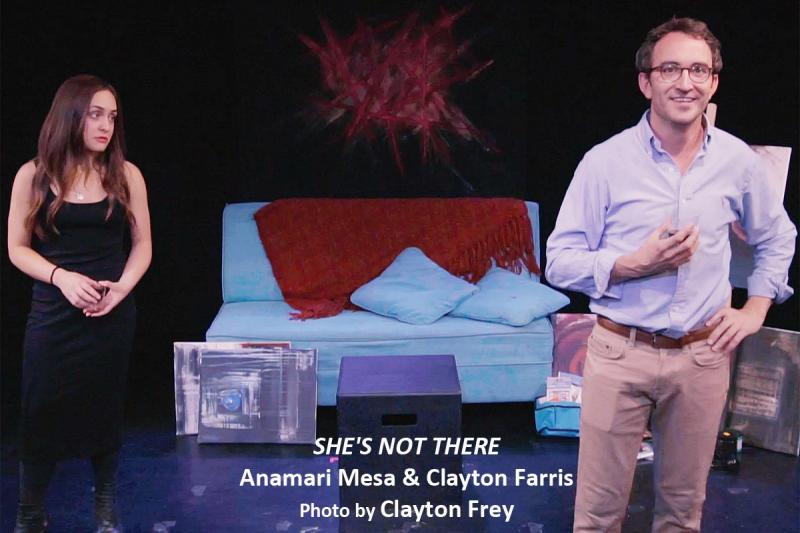 relationships and love, but not necessarily healthy ones. Each of the plays in my Trilogy examines relationships from a different toxic theme. When love is the drug, relationships have the ability to make zombies of us all.
relationships and love, but not necessarily healthy ones. Each of the plays in my Trilogy examines relationships from a different toxic theme. When love is the drug, relationships have the ability to make zombies of us all.
What would your three-line pitch of THIS WILL BE OUR YEAR be?
THIS WILL BE OUR YEAR is a rock & roll Greek tragedy where a meet-cute devolves into the romantic ruin of two smart, funny, but damaged people. The play follows Gen, a struggling New York jewelry designer, and Hugo, a fledgling British rock star, over the span of ten years as they meet, come together, fall apart, and destroy each other's lives.
How did you initially become involve with SheLA Arts?
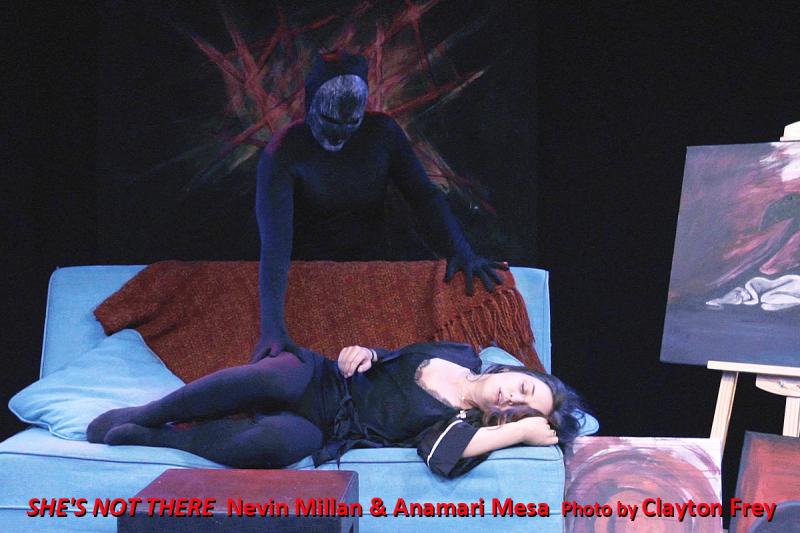 Last year my play SHE'S NOT THERE was one of the plays selected for the festival and was performed at the Zephyr Theatre. I enjoyed the entire process with SheLA/SheNYC. And the show was well received! We won Best Actor (Clayton Farris) and Best Production, and I was nominated for Best Director for the BroadwayWorld awards.
Last year my play SHE'S NOT THERE was one of the plays selected for the festival and was performed at the Zephyr Theatre. I enjoyed the entire process with SheLA/SheNYC. And the show was well received! We won Best Actor (Clayton Farris) and Best Production, and I was nominated for Best Director for the BroadwayWorld awards.
Have you worked with any of THIS WILL BE OUR YEAR's cast or creatives before?
I have worked with Rob Nagle before in readings of several of my plays. Rob brought me into the Antaeus Playwriting Lab when he was Artistic Director there, and he's one of my favorite people to work with. He's a phenomenal, chameleon-like actor and is extremely intuitive with material. He will always be in, what I call, the 'MacLean Company Players.' I do often use the same actors again and again. I've worked with Wes Mcgee before too, and I know Sharon Houston from doing stand-up. Megan is a talented actress I've known for a long time. I met our director, Jason Weiss of No Pants Theatre, recently when he directed a version of my reading, and he brought Will Doughty aboard.
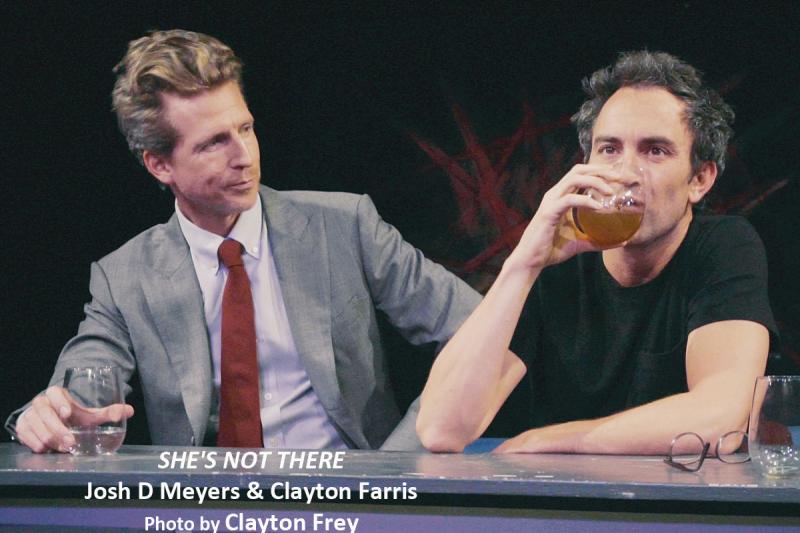 As the playwright, how hands on are you in this SheLA Arts production?
As the playwright, how hands on are you in this SheLA Arts production?
This time around, I am less involved than last year, which was a 24/7 job. Since I am acting in the play, I didn't want to also direct. Jason is a great director and he helps me to focus on my performance.
Was it your conscious effort to have a male director for this women's theatre festival production?
No, not a conscious one. Last year I searched for a female director, but the people I reached out to were busy. I finally decided that I knew I had a specific vision for it. This year is different, given the fact that everything has moved online. I had the opportunity to work with Jason Weiss, whose company No Pants Theatre, was one of the first to do play readings on Zoom, and we got along famously. Not only is he great with actors, but he is very tech-savvy, which is also a tremendous help.
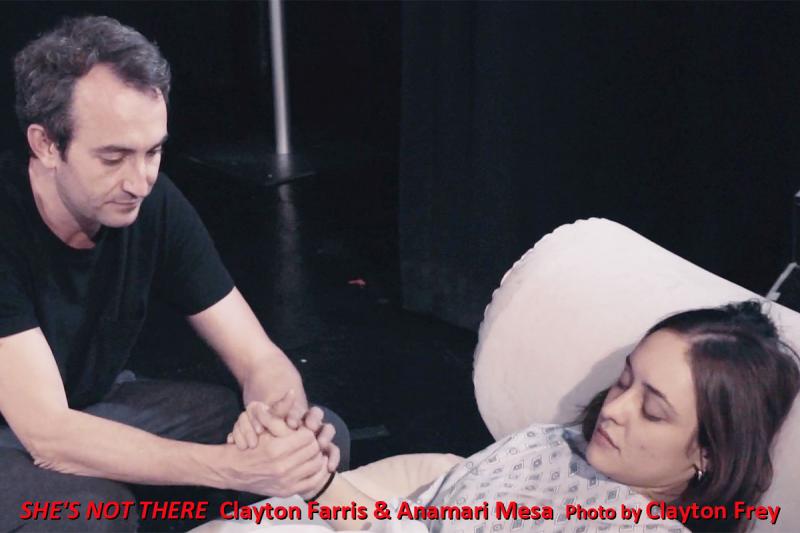 Are you involved in the pre-production of your various shows' premieres?
Are you involved in the pre-production of your various shows' premieres?
I do try and do a lot of social media posting, etc. I am as hands-on as I can be, and will be this time around as this particular play is special to me.
When does your scripted words become finalized? After a workshop? After a first public performance?
Never? I don't think I'm ever completely satisfied with a script. I have heart palpitations when I watch the computer spit out copies because I'm sure I need to tweak something else. I am a stickler for actors saying the lines as is, but I'm open to changes, if it makes sense. We changed a line in rehearsal last night.
You've been writing for television since the 1996 series Buzzkill. Would you say the percentage of women in the writers' room has increased since then?
 Not that I've noticed. The last TV show I worked on had myself and one other woman, which was supposed to be a big deal. The rest of the writers were men, including the head writer. The show, ironically, was about three women. So, I wouldn't say there is a ton of progress across the board. Sure, there are more women showrunners, directors, and producers than before, but if you look at the Geena Davis Institute statistics, it is still appalling. It still feels like a token hire in a lot of writers' rooms.
Not that I've noticed. The last TV show I worked on had myself and one other woman, which was supposed to be a big deal. The rest of the writers were men, including the head writer. The show, ironically, was about three women. So, I wouldn't say there is a ton of progress across the board. Sure, there are more women showrunners, directors, and producers than before, but if you look at the Geena Davis Institute statistics, it is still appalling. It still feels like a token hire in a lot of writers' rooms.
Also since 1996, you've been both acting on and writing for TV. Do you feel more self-gratification in front of the cameras acting or behind writing?
I definitely started out acting and loved it. I became a writer by default because I started doing stand-up comedy and had to write my own material. And then it was because there wasn't a lot of great material being written for women, by women. There weren't any FLEABAGs being written back then, nor many authentic female voices showing up on TV. Now, I feel more useful as a writer because I feel I can make more of an impact and move the needle a bit. They're both gratifying in different ways, but since I don't act as much anymore, it's more of a treat.
 You studied with Tony Award-winning director Des McAnuff at La Jolla Playhouse. What's the one piece of advice or knowledge he taught you that you try to utilize to this day?
You studied with Tony Award-winning director Des McAnuff at La Jolla Playhouse. What's the one piece of advice or knowledge he taught you that you try to utilize to this day?
I think one thing I took away from Des and the entire La Jolla experience was the love for the text. I learned as much about dramaturgy and breaking down a script there as I did about performance. That really helped me when I started writing. I write from a performance perspective. I write for actors.
Has any of your friends or family recognized themselves as one of the characters in one of your plays?
They think they have. It's like the song: "You're so vain, you probably think this play is about you." Usually, the people who think the character is about them are wrong, and the ones who I've based the character on, miss it entirely. The male character in this play is a composite of a few different musicians I knew back when I was a radio personality. However, there is one person in particular who might recognize himself in the manchild that is Hugo.
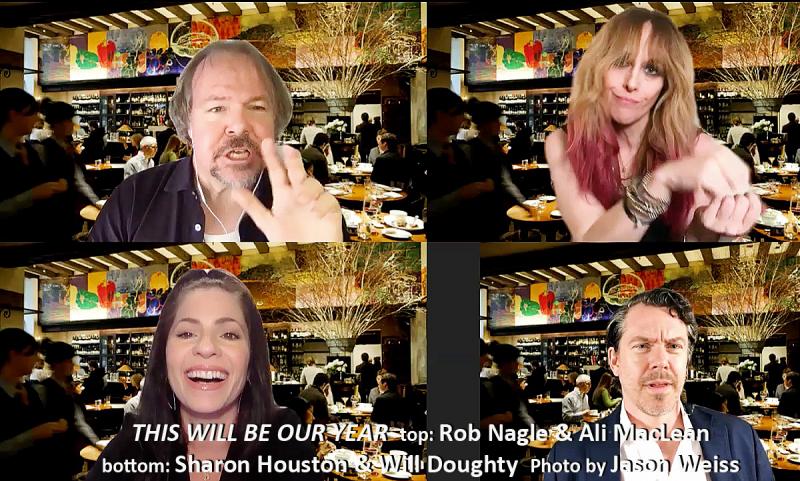 Is any one of your characters based on yourself?
Is any one of your characters based on yourself?
Oh, sure. A lot of them. I'm partly self-destructive Gen. I'm partly type-A Shannon. I'm partly deceptive Paul. I'm partly grieving Grace. A lot of people are convinced the main female character in SHE'S NOT THERE, the depressed Anna is me. But part of me is also self-effacing Rob, the male lead too. Part of me is his dickish best friend, Scott, as well. I'm pretty multifaceted. And if I'm not, I do a ton of research. I'm an amazing spy. I'm always listening in on your conversations. You've been warned.
What's more of a challenge for you - to write about a subject given to you (as in a writers' room)? Or to create a brand new piece of your own choosing in the comforts of your own home?
I think writing for someone else in a writers' room under their rules and parameters is more of a challenge. Writing my own material set in a world that I've dreamed up, with my own rules? What could be better?
Thank you again, Ali! I look forward to Zooming your Zombie, Part 2.
Thank you!
For viewing tickets for the July 17th Zooming of THIS WILL BE OUR YEAR (7pm PST), log onto https://shenycarts.org/she-la/
Comments

Videos

